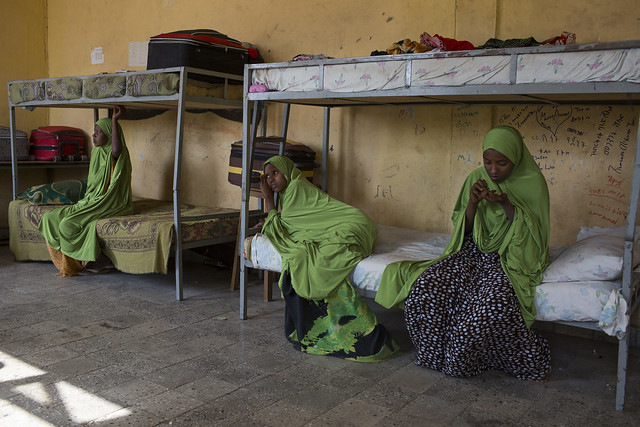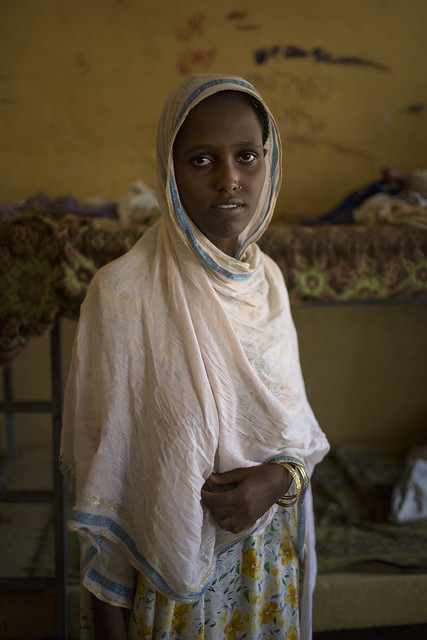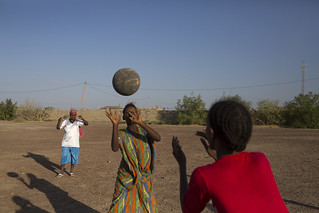By Rebecca Beauregard
DANOT, SOMALI, 15 February 2017 – “A woman never tells her age,” says Sadeh Abdihayii with a smile, affirming that this taboo is common around the world. She then admits to be 40 years old. We continue, asking her how many of her children are in school. With eight children ranging from nine months to 20 years old, none of them, including Sadeh, have been to school. Ever.
Sadeh had hoped one of them could go to school, but circumstances did not allow. “It seems sensible to learn, but we have not been able to,” says Sadeh.
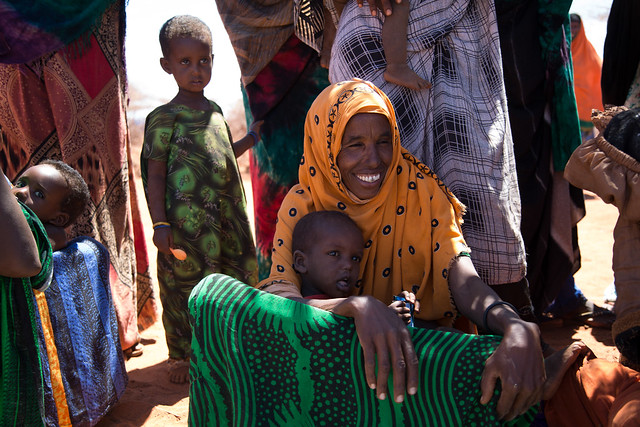
Living through drought
Sometimes Sadeh’s family lives in the vicinity of an organized village or town, such as now just outside Qorile kebele (sub-district), yet often they can be far away from any organized services including healthcare and schools. This is the life of a pastoralist family.
Sadeh’s family is one of the over 800 families that have temporarily settled in Danot woreda (district), in the eastern horned-tip part of Ethiopia. The Government of Ethiopia (GoE) has set up these temporary sites to provide life-saving medical and nutrition services, water and food during this drought period for one of the most vulnerable communities in the country, livestock-raising pastoralists.
Drought has hit these lowland areas across the Horn of Africa many times over the years, but Sadeh has never experienced one that devastated her livestock to this extent. Due to the negative Indian Ocean Dipole (IOD), a weather phenomenon, the December rains failed, making it 12 months since many villages in the area have experienced rain.
It is understandable why school has not been possible for many of these children, whether considering the current food and water shortages, or the nomadic patterns of their life. The regular school system does not fit into this lifestyle and it is a reality that is not often at the forefront of parents’ worries. With little or no safety net, pastoralist mothers and fathers are concerned with water, food and grazing land.
The GoE however, in partnership with UNICEF, has developed alternative methods to reach children, even those in remote areas.
Adapting education to the pastoralist context
With support from UNICEF, the Ministry of Education (MoE) has developed a pastoralist education strategy which is implemented across Somali and Afar, as well as some parts of Oromia and Southern Nations and Nationalities and Peoples’ (SNNP), regions where pastoralists are prominent.
The core intervention is a school equivalence programme, adapted for children ages 7 to 14, where students learn the equivalent of the first four grades of primary school before transitioning into formal schools. This Alternative Basic Education (ABE), is based on the national education system but has altered facets wherever necessary to make it feasible for the pastoralist context. Such alterations include low-cost construction of schools as well as flexible locations and schedules to accommodate children who herd their families’ animals or move in certain seasons.
While ABE is the most commonly implemented strategy for inclusion of pastoralist children, reaching 276,777 students over a period of six years, the GoE encourages families to enrol their children in formal schools whenever possible. UNICEF supports this initiative by identifying and addressing barriers to children joining school. Such interventions range from rehabiliting WASH facilities at schools to ensure proper toilets and water is available, to constructing temporary learning spaces or formal schooling in addition to providing exercise books for families who cannot afford the expense. Additionally, the GoE implements a school feeding programme to encourage school attendance, currently in 252 schools across Somali region.
More than ever, these crucial interventions are needed now , particularly as hundreds of ABE schools across Somali region are currently closed due to drought conditions.
‘Maybe somehow one day’
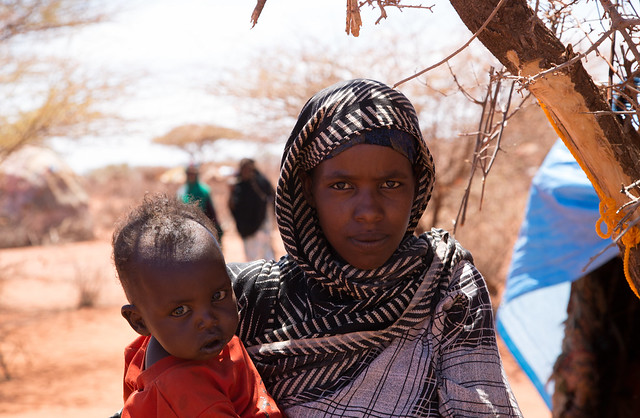
Families gathered near Qorile, such as Sadeh’s, are encouraged to enrol their children in the Qorile primary school, which is within walking distance, even if it may only be for short term. While the drought situation is dire, there is now an opportunity for thousands of children to attend school while their families are receiving temporary assistance to keep their livelihoods afloat.
Sadeh’s eldest child, Halimo Bandais, comments, “I thought about school sometimes. But I have always been looking after the animals and we are moving here and there. How could I? But some of us will, perhaps my child.” Perhaps he will attend school one day. For now, hundreds of school-age children such as the girls neighbouring Sadeh’s tent, Feysa and Isthel, may be able to finally start their education while in the temporary settlement sites with adequate funding.
UNICEF is committed to the right of every child to receive an education. With contributions from international donors, the GoE, along with UNICEF and other education partners can expand programmes such as ABE or temporary learning spaces to ensure children such as those temporarily settled in Qorile, have an opportunity to access education.

